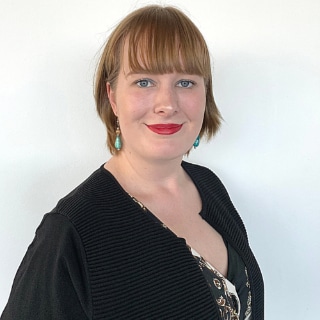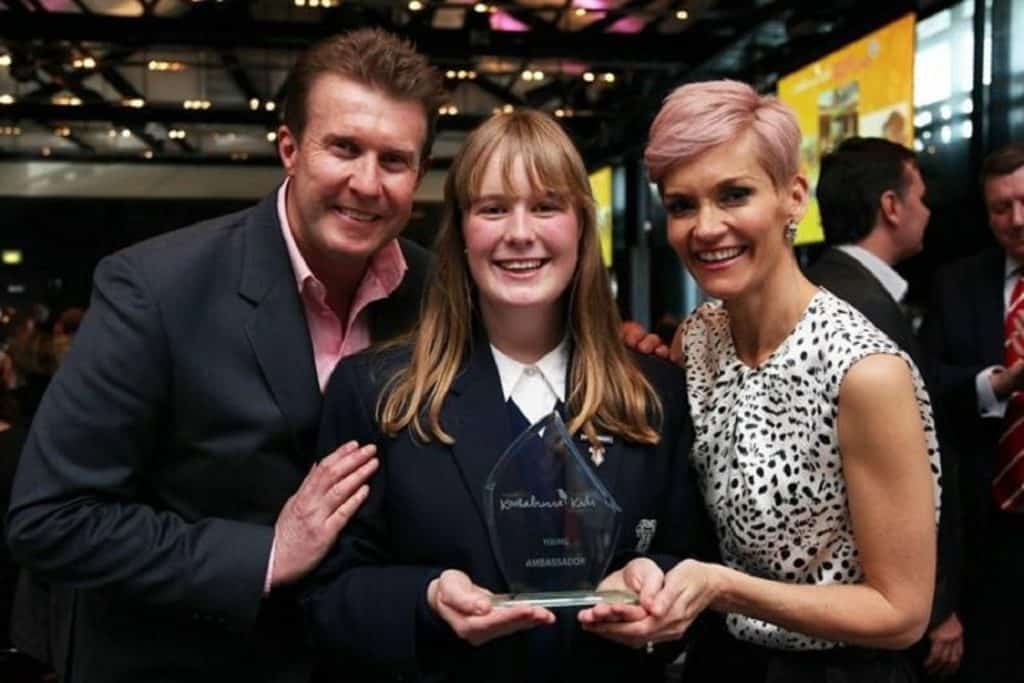Being the sole carer to my parents from such a young age really took its toll on me.
I was only eight years old when my mother was diagnosed with transverse myelitis and spent a year in hospital unable to walk. As a result, my father had a nervous breakdown, affected by his depression, anxiety and drug addiction.
Before all this happened, we were your typical inner-westie suburban family and in the blink of an eye, everything changed. At nine years old, while other kids went home and played with their friends after school, I went home and looked after our home. I had to motivate my dad to shower, shave and clean his teeth, which he wouldn’t want to do for weeks on end.

Unfortunately, I’m not alone in my experience – a quarter (23 per cent) of Australian children are living with at least one parent with a mental illness and concerningly, majority (60 per cent) of these children are also at greater risk of experiencing mental health struggles compared to their peers.
My life took a turn for the better when a social worker referred me onto the Australian Kookaburra Kids Foundation (AKKF). Their programs and camps gave me a chance to be a kid again and for the first time, I realised I wasn’t alone – the other kids understood what I was going through and that really took the weight off my shoulders.
At the AKKF programs, we learnt about mental health, resilience and looking after our own wellbeing. There are also fun activities, which many kids in these situations may not experience in their day-to-day lives. I can still remember the times we went kayaking, played in the snow, and just got to be a kid.
I also learnt so much about my dad’s mental illness and most importantly, I learnt it was not anyone’s fault and this helped me to keep moving forward in my life. I graduated high school, gained employment, and am even studying at university – all things that may not have been possible for me if I hadn’t gotten the support I needed as a child.
Fast forward to today, I’m now a volunteer and ambassador for AKKF – who support close to 3,000 young people across Australia. It is an honour for me to be able to help other young people who are going through similar experiences as I did. I see so much of myself in them, and I want to be the best role model for them.

This Mental Health Month, I’m passionate about shining a light on how the right support can help kids to thrive beyond the impacts of family mental illness.
New research uncovers that young people affected by mental health concerns are more likely to open up to their families after attending peer-connected programs. This means they are more likely to continue seeking support and asking for help from their loved ones.
The research also reveals an increase in mental health knowledge after attending AKKF programs and that having a shared identity and experiences with their peers helps young people to overcome the stigma of seeking help. This research is so promising as it shows that with the programs and early intervention, we can help young people overcome the impacts of intergenerational mental illness and live happier lives.
There is still so much we can do. The past few years have been tough on all Australians. Lingering lockdown impacts, employment uncertainty and rising costs of living, create stress and trauma for the whole family, not just the parent. Additionally, natural disasters have had significant impacts on the mental health of families. Now is a critical time to support those in the community and to give them the tools they need to cope and improve their wellbeing.
To ensure young people impacted by family mental illness can access the support programs they need, AKKF are calling on Australians, who can, to donate at kookaburrakids.org.au.
Rose Cox is the youth ambassador for the Australian Kookaburra Kids Foundation.


